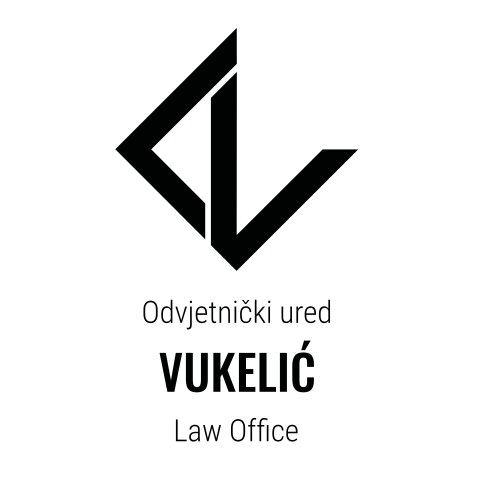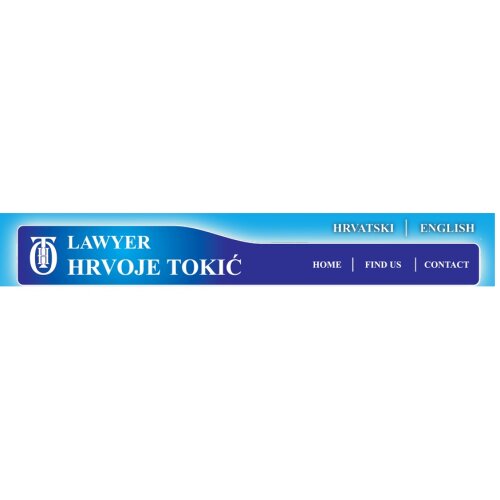Best Due Diligence Lawyers in Croatia
Share your needs with us, get contacted by law firms.
Free. Takes 2 min.
Or refine your search by selecting a city:
List of the best lawyers in Croatia
About Due Diligence Law in Croatia
Due diligence is a critical process in the business and legal landscape of Croatia, often forming a key component of corporate transactions, mergers and acquisitions, and real estate deals. It involves a thorough investigation and evaluation of a business or property before a transaction is concluded. The purpose is to uncover any potential liabilities, legal issues, or other factors that might affect the transaction. In Croatia, due diligence is particularly important in foreign investments due to the country's specific regulations and business environment.
Why You May Need a Lawyer
Engaging a lawyer for due diligence procedures in Croatia is advisable for several reasons:
- Complex Transactions: Large mergers and acquisitions can be exceedingly complex, requiring an experienced lawyer to navigate legal requirements.
- Local Regulations: Croatian laws and regulations can differ significantly from other jurisdictions, and a local lawyer can help ensure compliance.
- Risk Management: Lawyers help identify potential risks and liabilities by conducting a comprehensive review of contracts, financial statements, and other legal documents.
- Negotiations: Legal advice can be crucial during negotiations, ensuring that your interests are protected and that you secure favorable terms.
- Real Estate Transactions: Buying property in Croatia involves understanding land titles, zoning laws, and more, where a lawyer’s expertise is invaluable.
Local Laws Overview
The legal framework surrounding due diligence in Croatia involves several key aspects:
- Company Law: Governs the establishment, management, and dissolution of companies in Croatia, crucial for evaluating corporate liabilities and structures during due diligence.
- Real Property Law: Addresses the ownership and rights related to real estate, essential for property-related due diligence.
- Contract Law: Understanding contractual obligations and liabilities is a cornerstone of due diligence activities.
- Taxation: Croatian tax regulations impact the financial evaluation during due diligence, especially concerning corporate transactions and real estate deals.
- Labor Law: Important when evaluating the implications of mergers or acquisitions on employee rights and liabilities.
Frequently Asked Questions
1. What is due diligence?
Due diligence is the process of investigating a business or property to identify any potential risks or liabilities before completing a transaction.
2. When is due diligence necessary in Croatia?
Due diligence is typically conducted during mergers and acquisitions, real estate purchases, corporate restructuring, and when entering new markets.
3. Who conducts due diligence?
Due diligence is usually performed by financial advisors, legal experts, accountants, and specialists in the field relevant to the transaction.
4. How long does the due diligence process take in Croatia?
The duration varies based on the complexity of the transaction, but it generally takes between a few weeks to several months.
5. Can due diligence be skipped?
While possible, skipping due diligence is risky as it may lead to unforeseen liabilities or legal issues post-transaction.
6. What documents are typically reviewed during due diligence?
Common documents include financial statements, contracts, property titles, regulatory licenses, and employment records.
7. Are there specific Croatian regulations affecting due diligence?
Yes, Croatian company law, property law, and tax regulations, among others, all affect due diligence procedures.
8. Can a foreign investor conduct due diligence on their own?
While possible, it is often advisable for foreign investors to engage local legal experts due to the complexity of Croatian laws.
9. What happens if liabilities are found during due diligence?
Potential liabilities can impact the negotiation terms, and parties may either renegotiate, demand rectifications, or even abandon the transaction.
10. How much does it cost to hire a lawyer for due diligence in Croatia?
The cost can vary significantly based on the complexity and duration of the process, so it is best to obtain quotes from multiple legal firms.
Additional Resources
Those seeking more information on due diligence in Croatia might find the following resources useful:
- Croatian Chamber of Economy: Offers resources and guidance for businesses operating in Croatia.
- Agency for Investments and Competitiveness: Provides information on foreign investments and regulatory requirements.
- Croatian Bar Association: Can help connect you with qualified lawyers experienced in due diligence.
- Ministry of Justice and Public Administration: Publishes updates on new laws and regulatory changes in Croatia.
Next Steps
If you need legal assistance concerning due diligence in Croatia, consider the following steps:
- Assess Your Needs: Clearly determine the type of transaction or investment you are involved in.
- Consult Professionals: Contact a legal firm specializing in Croatian due diligence to discuss your specific needs.
- Prepare Documents: Gather all relevant documents needed for a thorough due diligence process.
- Engage a Lawyer: Hire a lawyer with expertise in the Croatian market and relevant area of law to guide you through the process.
- Understand the Process: Work with your lawyer to ensure you fully understand each step of the due diligence procedure and any potential findings.
Lawzana helps you find the best lawyers and law firms in Croatia through a curated and pre-screened list of qualified legal professionals. Our platform offers rankings and detailed profiles of attorneys and law firms, allowing you to compare based on practice areas, including Due Diligence, experience, and client feedback.
Each profile includes a description of the firm's areas of practice, client reviews, team members and partners, year of establishment, spoken languages, office locations, contact information, social media presence, and any published articles or resources. Most firms on our platform speak English and are experienced in both local and international legal matters.
Get a quote from top-rated law firms in Croatia — quickly, securely, and without unnecessary hassle.
Disclaimer:
The information provided on this page is for general informational purposes only and does not constitute legal advice. While we strive to ensure the accuracy and relevance of the content, legal information may change over time, and interpretations of the law can vary. You should always consult with a qualified legal professional for advice specific to your situation.
We disclaim all liability for actions taken or not taken based on the content of this page. If you believe any information is incorrect or outdated, please contact us, and we will review and update it where appropriate.
Browse due diligence law firms by city in Croatia
Refine your search by selecting a city.

















